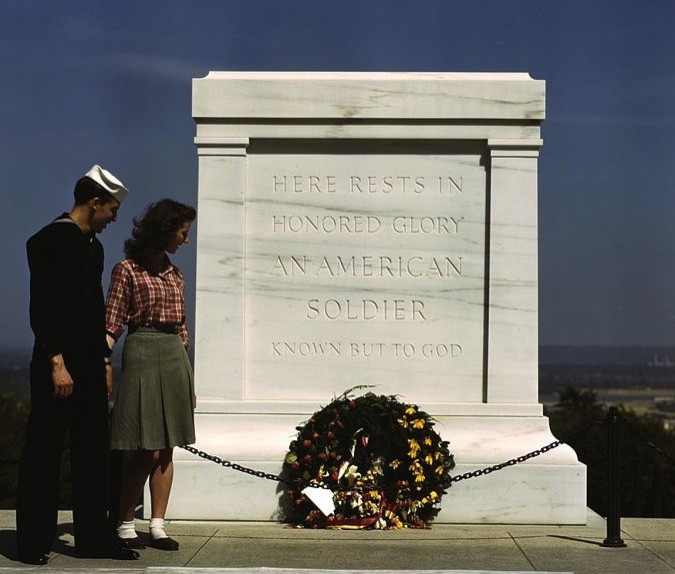How Do We Draw Personal Inspiration From Arlington National Cemetery?
OPINION

I recently visited the gravesite of a friend’s parents at Arlington National Cemetery. Both parents were career Navy officers and educators who made great contributions to U.S. national security. They were experts in encryption which was credited with developing unbreakable codes during World War II and the Cold War.
I was filled with solemnity and great compassion for our war dead. Some 400,000 soldiers and prominent Americans are buried at the cemetery. On average, 40 funerals take place every day, many of which are for those killed in the Iraq and Afghanistan Wars.
The sea of white headstones spurred me to think about civic republicanism: the virtue of public service. Up until the 1950s, many Americans demonstrated civic republicanism through volunteerism, community and military service. People recognized that participation sustained American democracy. Nine percent of the population served in World War II, and a large share participated in some form community service.
Unlike Sarah Palin’s critique of President Barack Obama’s community organizing during the 2008 election, people did not consider public service beneath them.
Only one percent of the U.S. population serves in the military today. This doesn’t bode well for the future health of our armed services. The military is in danger of losing its understanding of the daily lives of those it defends (the public), while the risks rise of the public failing to understand why we fight.
A large portion of the public is either not motivated to help our soldiers, or may not be aware of the simple things they can do to brighten the lives of our soldiers. Help doesn’t just mean joining the military; it could also come in the form of contributing to Post Traumatic Stress Disorder charities, sending ‘thank you’ notes to patients at Walter Reed Army Medical Center, or, most urgently, pushing politicians to help find ways to lower suicide rates among our active duty population.
The Army reported record rates last month. Gen. Lloyd J. Austin, Vice Chief of Staff of the Army, said in a written statement: "Suicide is the toughest enemy I have faced in my 37 years in the Army.”
We must always remember the sacrifices our war dead made to defend the U.S. and draw inspiration from those memories to drive our own gestures of public service. Otherwise, civic republicanism is in danger of becoming a faint ghost walking the graves of our most sacred memorial.
Jamie Chandler is a political scientist at Hunter College in New York City.
© Copyright IBTimes 2024. All rights reserved.





















